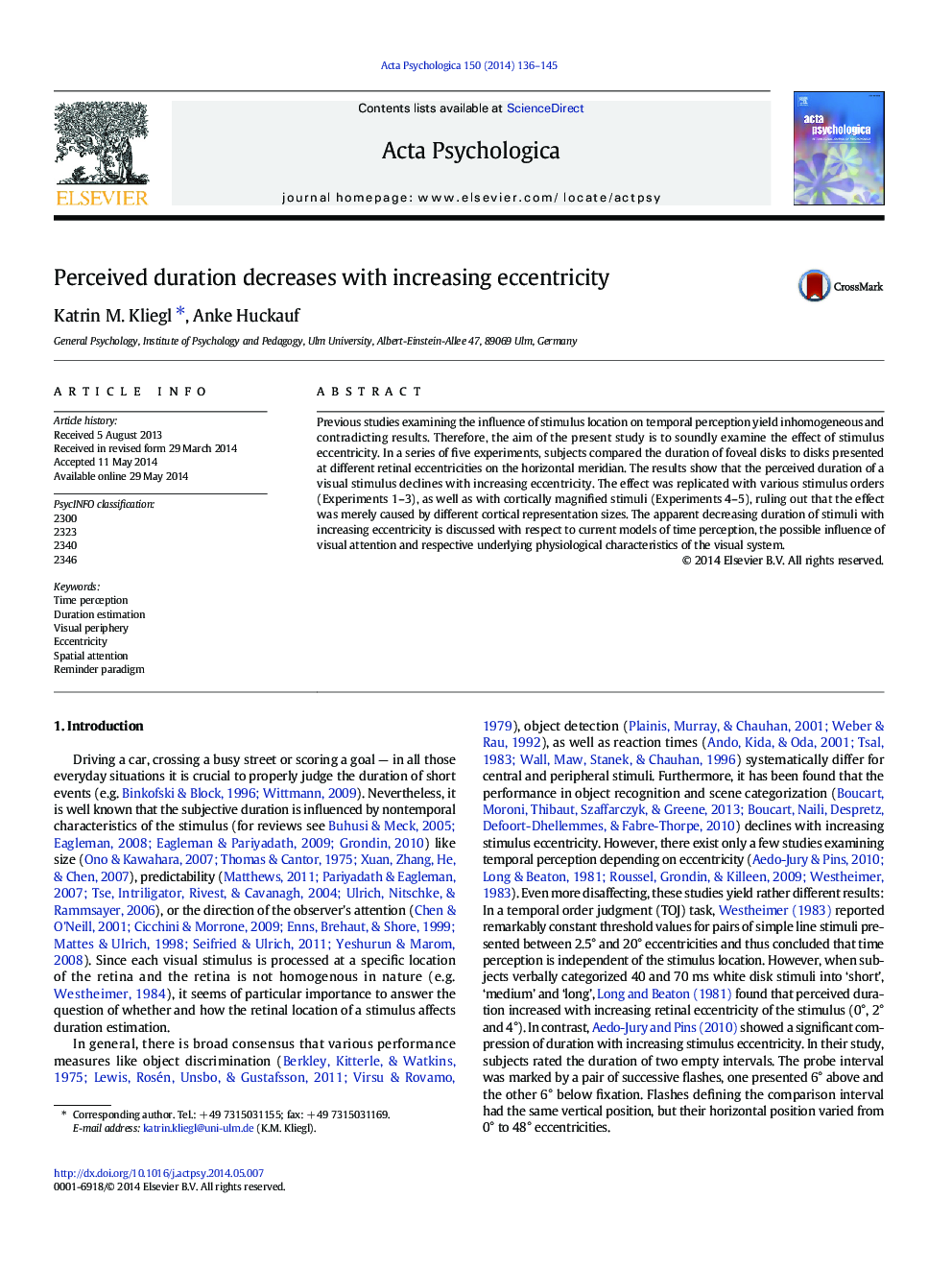| Article ID | Journal | Published Year | Pages | File Type |
|---|---|---|---|---|
| 919742 | Acta Psychologica | 2014 | 10 Pages |
•Our aim was to examine the effect of stimulus eccentricity on duration perception.•Subjects compared the duration of disks presented foveally and in the periphery.•Results show that perceived duration declines with growing stimulus eccentricity.•The effect was replicated with various stimulus orders and with scaled stimuli.
Previous studies examining the influence of stimulus location on temporal perception yield inhomogeneous and contradicting results. Therefore, the aim of the present study is to soundly examine the effect of stimulus eccentricity. In a series of five experiments, subjects compared the duration of foveal disks to disks presented at different retinal eccentricities on the horizontal meridian. The results show that the perceived duration of a visual stimulus declines with increasing eccentricity. The effect was replicated with various stimulus orders (Experiments 1–3), as well as with cortically magnified stimuli (Experiments 4–5), ruling out that the effect was merely caused by different cortical representation sizes. The apparent decreasing duration of stimuli with increasing eccentricity is discussed with respect to current models of time perception, the possible influence of visual attention and respective underlying physiological characteristics of the visual system.
